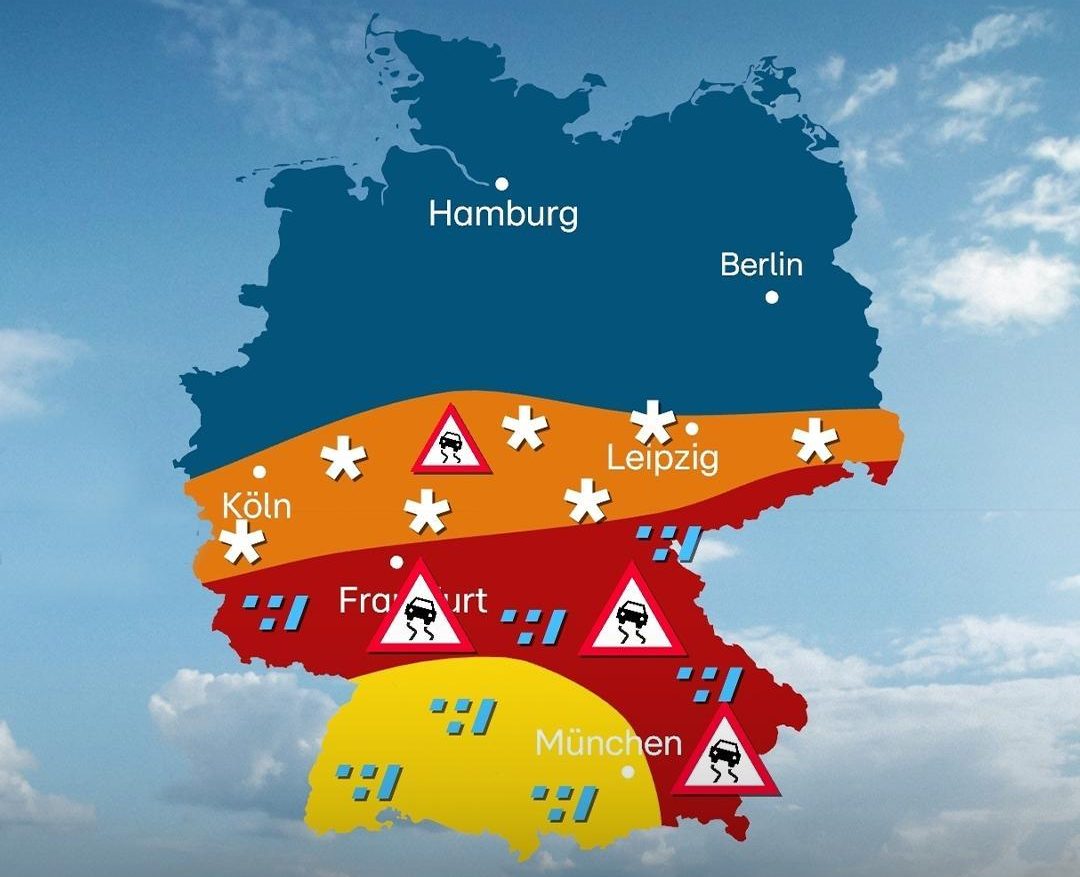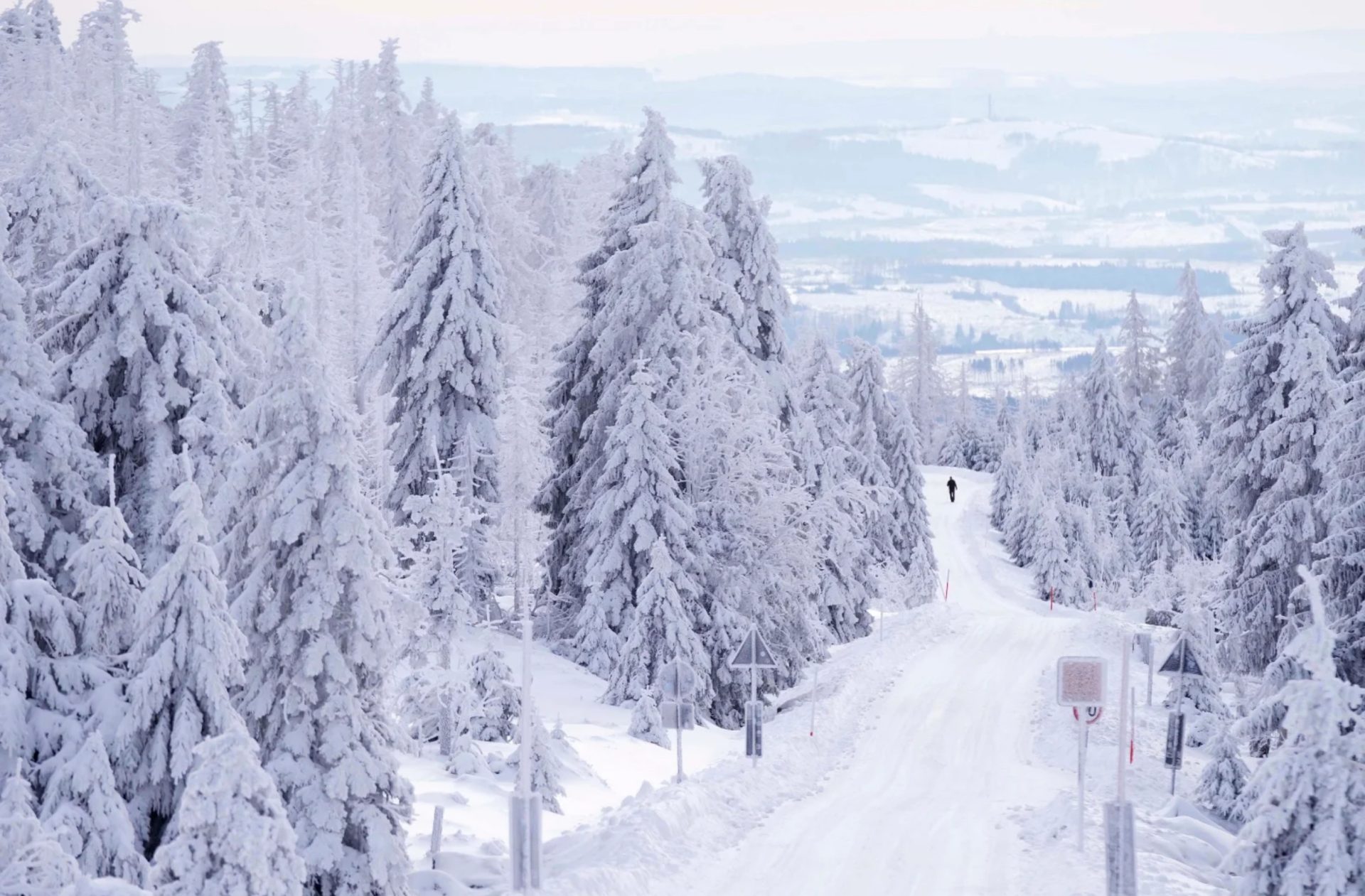
A large storm front moved across large parts of Germany on Wednesday, January 17, bringing snowfalls and freezing rain to cities and towns at sea level. The low-pressure system dubbed ‘Gertrud’ was impacting central and southern German states, bringing up to 40 centimeters (16 inches) of snow in some areas and freezing rain and hazardous icy roads to others.
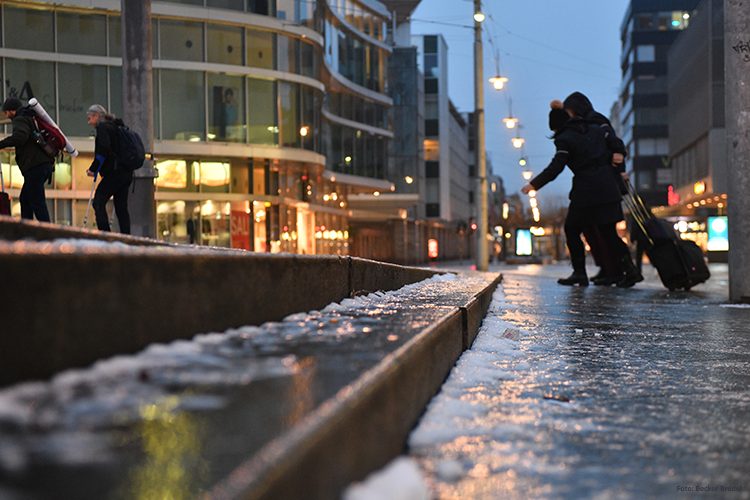
Traffic and transport have seen widespread disruptions, as winter clearing services were not available on such a large scale. The A3, Germany’s second longest highway, saw motorists trapped for up to seven hours, as traffic jams due to snow on the roads ground traffic to a halt during the night. The German Red Cross was handing out hot tea to those trapped in their cars. The A3 travels is one of Europe’s most crucial axes for transport from the south of Europe to the north. Many international trucks were caught in the snowstorm without winter tires, leaving them unable to move on the snowy roads.
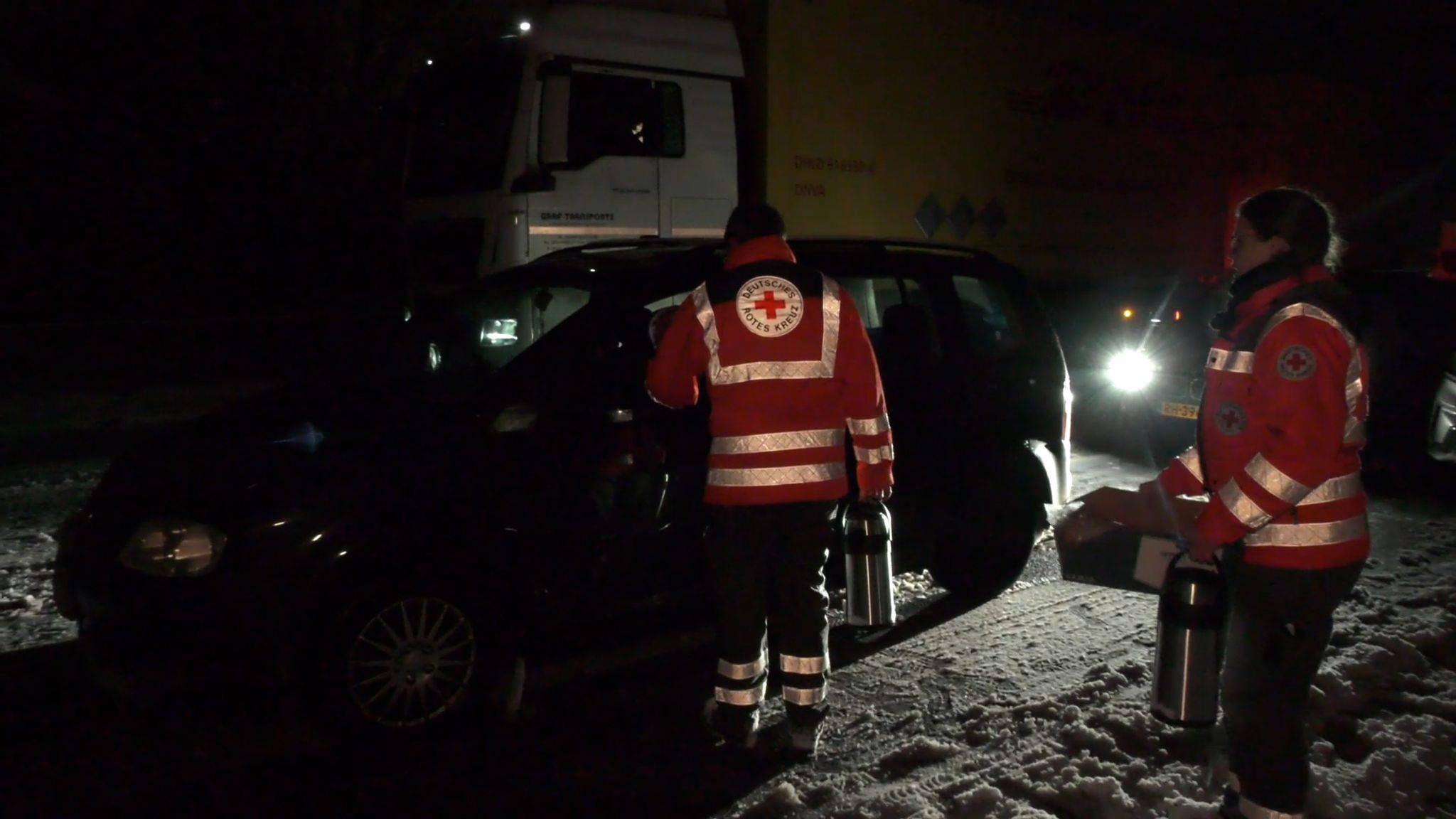
Regional public transport had to be canceled in many cities or experienced significant delays. The Deutsche Bahn, Germany’s national rail company, was forced to slow down several of its famous high-speed trains due to slippery conditions on the national rail network. Schools in many regions closed for the day, as teachers and students were unable to travel to school safely.
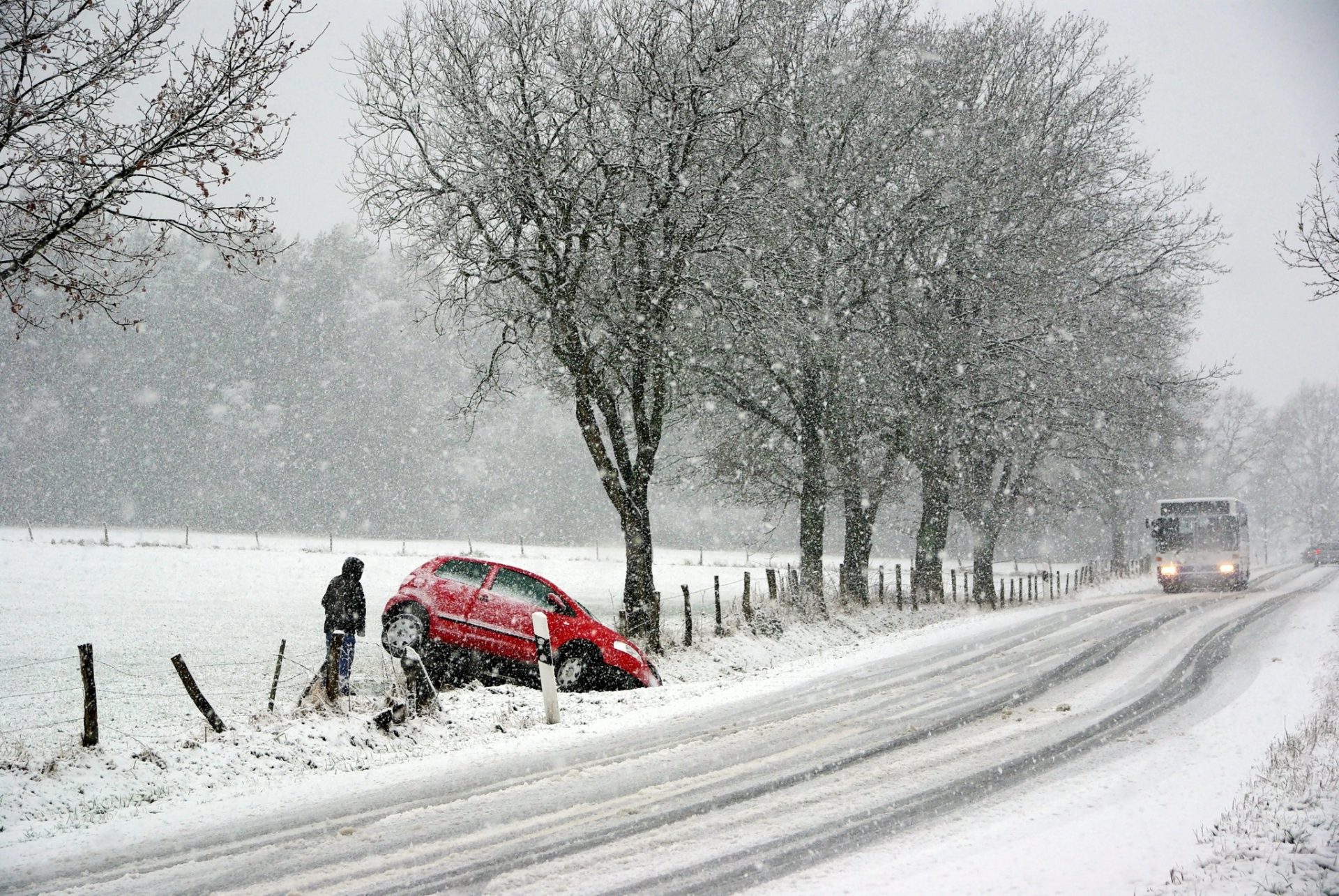
Germany’s largest airport, Frankfurt Airport, was forced to cancel hundreds of flights and disruptions are expected to continue. Frankfurt Airport is one of the world’s busiest airports by international passenger traffic. According to an airport official 570 out of 1,047 flights were canceled yesterday, January 17, 2024. Munich airport also experienced some disruptions with 250 out of 650 scheduled flights being canceled.
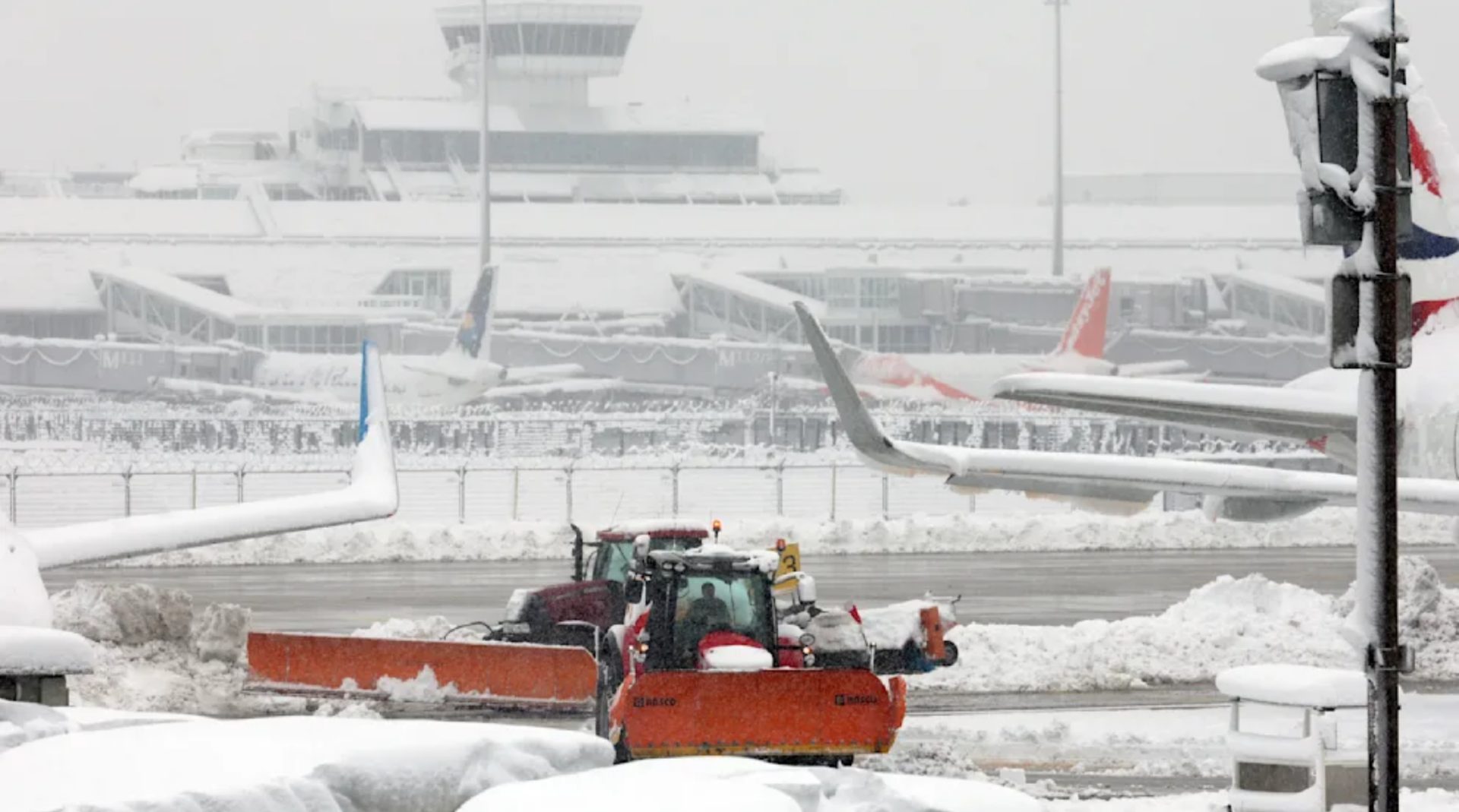
While the low-pressure system is easing over the next couple of days, the weather is supposed to stay cold and snowfall is supposed to continue across several states.
